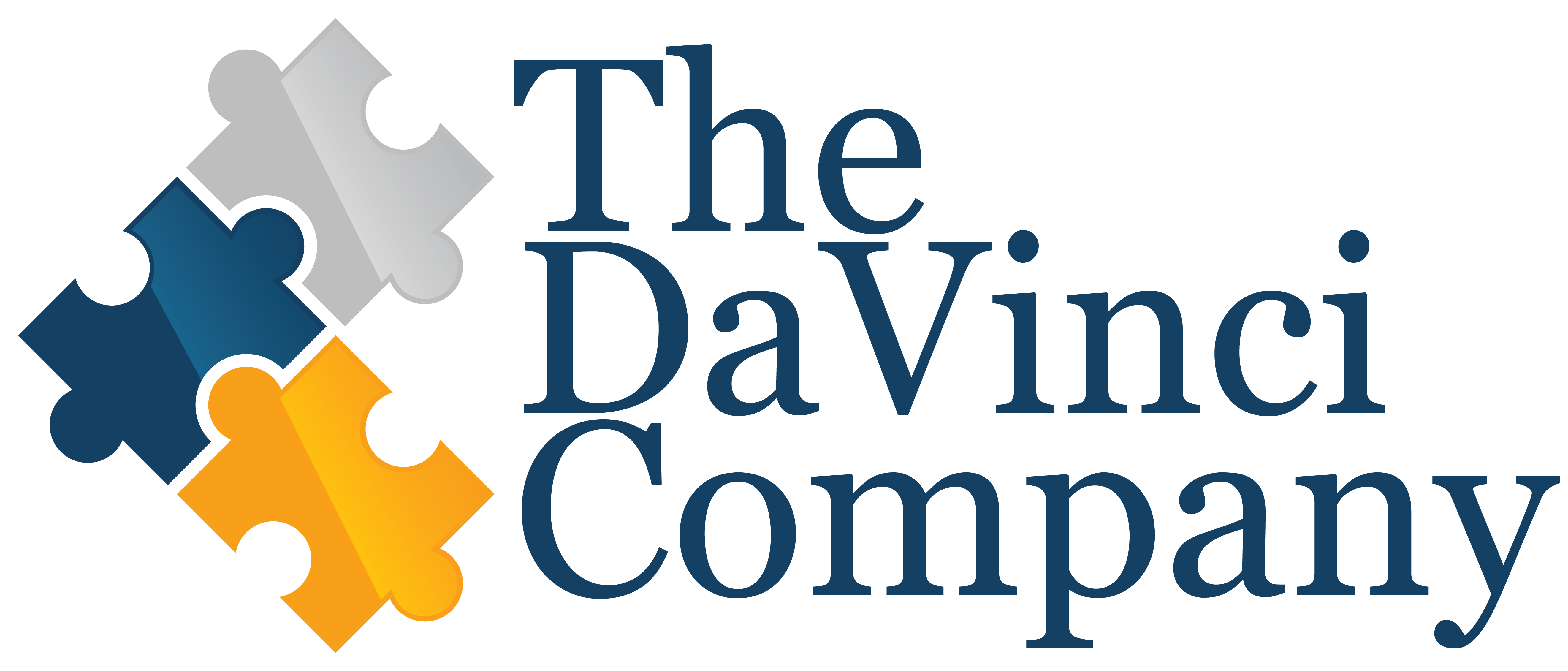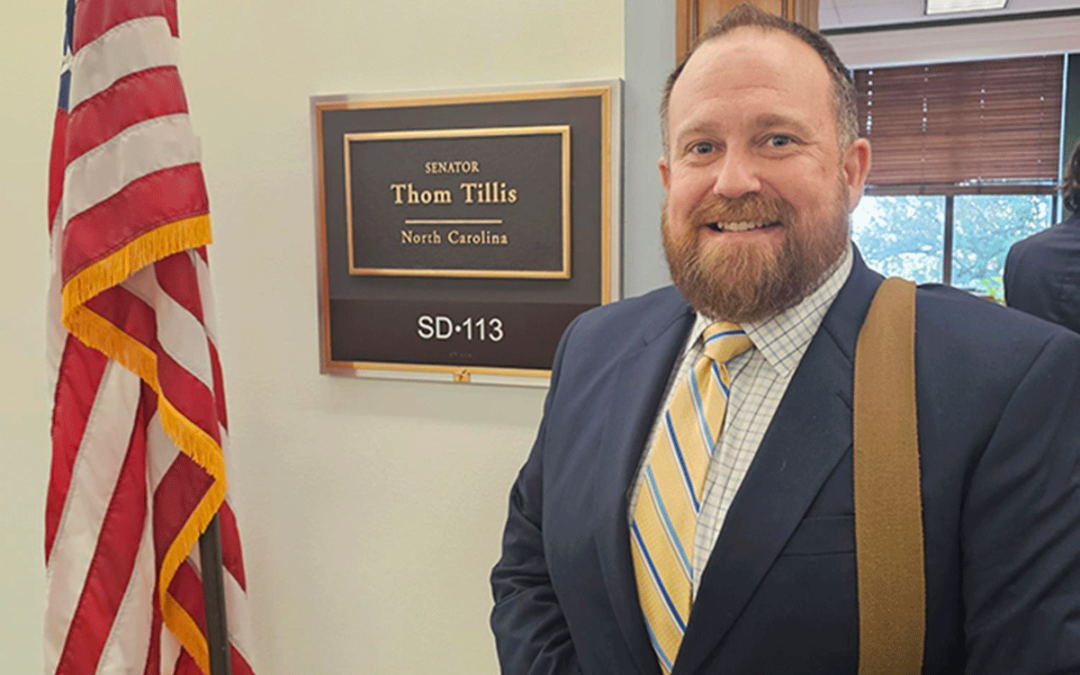
Significant changes are on the horizon for how businesses engage with the government. DOGE is working to consolidate purchasing power across most Executive Branch departments through the General Services Administration (GSA). While the Department of Defense (DoD) may retain a substantial share of its procurement autonomy, other agencies such as the VA, DHS, and State Department are expected to unify under GSA’s oversight. This centralized approach will leverage AI to streamline purchasing decisions and identify cost savings.
Insights from the NVSBC Dinner and Navigating Federal Changes
Washington, DC – March 24, 2025 – On the week of March 12, Dan Shoaf, CEO of The DaVinci Company, had the opportunity to attend the National Veteran Small Business Coalition (NVSBC) dinner in Washington, DC. It was an enlightening experience, providing a front-row seat to discussions about the effects of governmental changes on small business dynamics. Key topics included the influence of the Trump Administration and the Department of Government Efficiency (DOGE) on federal spending, regulations, and acquisition processes.
In addition to the NVSBC event, Shoaf embarked on a significant journey to Washington, DC, traveling via Amtrak from North Carolina to meet with U.S. Senators Thom Tillis and Ted Budd. The discussions with the senators centered around critical issues affecting the Department of Veterans Affairs (VA), small business suppliers, and North Carolina’s Service-Disabled Veteran-Owned Small Businesses (SDVOSBs) like The DaVinci Company. Shoaf emphasized the importance of creating a more supportive environment for SDVOSBs and improving access to resources for those serving the VA. His trip highlighted the ongoing commitment to advocating for policies that help small businesses thrive while ensuring the continued success of veteran-owned enterprises.


Understanding the Origin of DOGE
To appreciate the current landscape, it’s important to understand DOGE’s origins. This department was established from President Obama’s United States Digital Service (USDS), initially created to tackle challenges faced by Healthcare.gov. The USDS focused on enhancing government services through innovation and design. Today, DOGE’s mission has shifted to modernizing federal technology and software to maximize governmental efficiency and productivity. While both missions share the goal of improving services, DOGE is now concentrating on cost-cutting and operational efficiency under the Office of Management & Budget (OMB).
Though DOGE faces some legal challenges, these are expected to resolve quickly. Since the department operates under the OMB and has a longstanding presence dating back to the Obama era, it is positioned to adapt smoothly. Rather than making direct cuts, DOGE empowers agency leaders with data to make informed decisions. While lawsuits attempt to challenge its operations, confidence remains that DOGE will continue its mission without significant disruption.
Effects on Small Business Sales to the Government
One of DOGE’s most significant impacts is the increased scrutiny on consultants, IT service contracts, and spending related to diversity, equity, and inclusion (DEI) initiatives. Companies whose websites emphasize these terms may face closer examination. AI technology is now being used to identify and potentially sever connections with companies tied to such keywords, reflecting a streamlined spending approach reminiscent of Elon Musk’s restructuring tactics at Twitter.
Shifts in Federal Acquisition
Significant changes are on the horizon for how businesses engage with the government. DOGE is working to consolidate purchasing power across most Executive Branch departments through the General Services Administration (GSA). While the Department of Defense (DoD) may retain a substantial share of its procurement autonomy, other agencies such as the VA, DHS, and State Department are expected to unify under GSA’s oversight. This centralized approach will leverage AI to streamline purchasing decisions and identify cost savings.
Getting Ready for the Future
Adapting to these changes will require proactive steps from businesses. Establishing strong relationships with program offices and positioning your company as an essential partner will be crucial. Aligning your messaging with DOGE’s priorities will also help ensure continued success in the evolving landscape.
Notably, while many socio-economic set-asides may be reduced, two groups are expected to remain intact: Indian-Owned 8(a) companies and Service-Disabled Veteran-Owned Small Businesses (SDVOSBs). Their strong advocacy presence on Capitol Hill and the integrity rooted in their backgrounds contribute to their continued stability.
Partnering with an SDVOSB like The DaVinci Company offers a strategic advantage. Veterans are trained to adapt and overcome challenges, making them reliable partners in a shifting market. By understanding the new rules and challenges, companies can quickly adjust and find effective solutions.
Collaborating for Success
Forming alliances with SDVOSBs and other like-minded companies can provide significant advantages. A collaborative approach strengthens resilience and reduces the likelihood of facing elimination. By leveraging the adaptability of SDVOSBs, businesses can navigate regulatory changes and thrive in the new environment.
Wrapping It Up
Insights from the NVSBC dinner underscore the substantial transformations occurring in federal spending, regulations, and procurement. With a renewed focus on efficiency and cost-cutting, driven by DOGE and the Trump Administration, small businesses must stay informed and adaptable. By forging strong partnerships with SDVOSBs like The DaVinci Company, companies can confidently navigate these changes and achieve ongoing success.
Sign Up For Our Newsletter
(336) 907-8990
Contact
The DaVinci Company
Today

